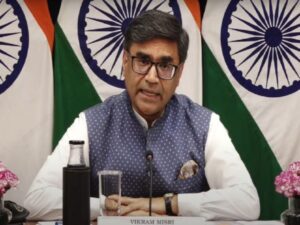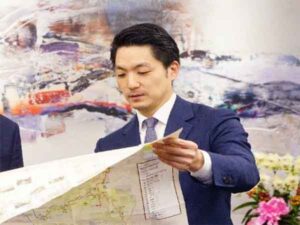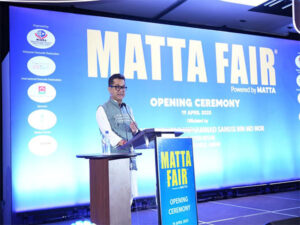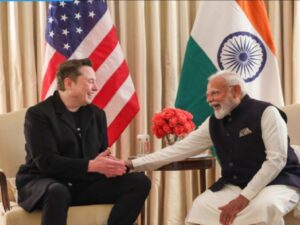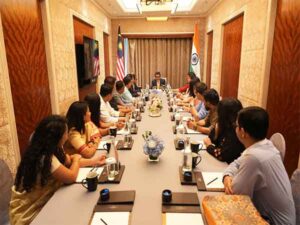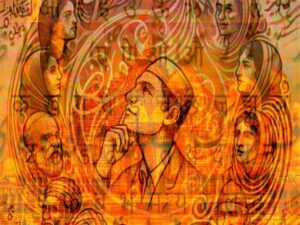Climate change is Singapore’s biggest long-term crisis, says Indian-origin presidential hopeful Tharman
Singapore, Aug 15 (PTI) Climate change is the biggest long-term crisis that Singapore faces and adapting to it will require infrastructural investments, the country’s Indian-origin presidential hopeful Tharman Shanmugaratnam has said.
Tharman, 66, resigned from public and political posts in July to run for the presidency and is likely to face a challenge from three other Chinese-origin Singaporeans who have submitted bids to contest the election.
The Indian-origin former minister shared his knowledge of managing national reserves and explained how this experience will help him in his role as the president if he is elected.
During the global financial crisis in 2008, precipitated by the bursting of the US housing bubble, Tharman said he was a finance minister and had proposed a draw of Singapore dollars 4.9 billion from the past reserves to fund a jobs credit scheme and a plan to encourage banks to lend money to businesses.
For the second time, Tharman was a senior minister advising Prime Minister Lee Hsien Loong on economic policies during the Covid-19 pandemic, when the government proposed drawing down the reserves to the tune of Singapore dollars (SGD) 69 billion to save jobs and lives.
Asked how his past experience of managing national reserves will help him as the president if he is elected, he said considering a draw on the reserves is “never a black-and-white matter”.
“It’s not just a matter of a second key (a term used to control by the President the use of reserves by the Government), the Government (holding the first key) comes to you (the President), and you decide whether to turn it or not,” The Straits Times newspaper quoted Tharman as saying on Tuesday.
“You’ve got to understand the issues well. You’ve got to have a dialogue with the government on it. And it helps to have a background where you have been deeply involved in economic policy. In fact, social policies as well are relevant,” he said.
“You have an understanding as to how the reserves have to be preserved in a way that serves future generations because these crises will keep coming,” the report quoted Tharman as saying.
The biggest long-term crisis that Singapore faces is climate change, and adapting to it will require infrastructural investments, he said.
He said in deciding whether or not the reserves can be used, the president will have to make “considered and calibrated judgments, not just responding in the heat of crisis”.
He elaborated on how this role will evolve, and how his track record of independence and his experience in government will help him discharge his functions as president if he is elected.
“The formal executive powers of the presidency will… become more important than before precisely because of the challenges we face: the global challenges, the challenges of climate change,” he said.
Tharman said the role of making judicious judgments is going to be more important than what it was in the past for the president.
“We were focused very much on just creating a framework for spending income from reserves and protecting the rest of our reserves.
“That role of making judicious judgments as we had to do during Covid-19, as we had to do during the global financial crisis, and for being able to invest ahead of time in long-term infrastructure that role is going to grow,” he said.
Unfortunately, the crises are going to keep coming, he added.
Tharman said he started young as an idealist and he was always looking for solutions.
He said he made a decision to enter politics because he wanted to spend the rest of his time serving people and helping in creating initiatives on the ground.
Entrepreneur George Goh, the 63-year-old former investment chief at the state-owned GIC, Investment manager Ng Kok Song, 75, and Singaporean businessman Tan Kin Lian, 75, have submitted bids to contest the election of the president.
Singapore has a stringent qualification process for candidates bidding for the presidency. The contender must have served in higher public sector offices and or managed private sector businesses with at least SGD 500 million shareholders’ equity during the person’s most recent three-year period of service as chief executive.
The Elections Department (ELD) has announced September 1 as voting day for the election of the president, if there are two or more contestants.
Singaporeans will know if they will get to cast their vote or if the election will be a walkover, on Nomination Day, which will be on August 22.
Incumbent President Halimah Yacob, 68, ends her six-year term on September 13 this year.

